Playlist
Day One
-
Registration Opens
8:00am
-
Conference Kick Off
Host: Makoto Ueki
9:30am – 9:40am
-
Don't let your vision be a dream
David Tisserand
9:40am – 10:20am
-
Morning Break
10:20am – 10:50am
-
Voice of Contention
Léonie Watson
10:50am – 11:30am
-
Preventing Accessibility Issues instead of fixing them
Dirk Ginader
11:30am – 12:10pm
-
An Audio Description Ghost Story: An exloration of description-rich storytelling
J.J. Hunt
12:10am – 12:30am
-
Day One Lunch
12:30pm to 1:40pm
-
PRESTO Vending Machines: Meeting the challenges of accessible self-serve kiosk design
Marcela Correa Villada
1:40pm – 2:00pm
-
A rebel with a cause: How to address game accessibility production challenges with confidence and audacity
Améliane Chiasson
2:00pm – 2:40pm
-
Making your procurement process accessible
Robert Carr
2:40pm – 3:00pm
-
Afternoon Break
3:00pm – 3:20pm
-
The Double-Edged Sword of A11y: How Both Academia and Industry Get Accessibility Wrong
Michelle A. Williams
3:20pm – 4:00pm
-
Designing with empathy
Maria Acevedo
4:00pm – 4:20pm
-
These (still) aren't the SCs you're looking for…
Patrick Lauke
4:20pm – 5:00pm
Day Two
-
Avoid rotten fish in your design system with values-driven accessibility guidance
Ryan Bigge
9:00am – 9:20am
-
Redesigning for Cognitive Ease
Alyssa Panetta
9:20am – 10:00pm
-
Work in Disability Progress
Jessica Oddi
10:00am – 10:20pm
-
Morning Break
10:20am – 10:50am
-
Save Our World with Accessibility & Progressive Enhancement
Jennifer Strickland
10:50am – 11:30am
-
Native Mobile Accessibility Guidelines?
Joe Humbert
11:30am – 11:50am
-
No Industry for Old Men
Steve Faulkner
11:50am – 12:30pm
-
Day Two Lunch
12:30pm to 1:40pm
-
Accessibility beyond the web - Best Practices to make TV interfaces accessible
Alpesh Danabhai Ahir
1:40pm – 2:00pm
-
So you want to build an Accessibility Program
Wendy Reid
2:00pm – 2:40pm
-
Benchmarking Screen Reader Accessibility in User Research
Elana Chapman
2:40pm – 3:00pm
-
Afternoon Break
3:00pm – 3:20pm
-
The Psychology Behind Accessibility Hesitation
Jennifer Zhang
3:20pm – 4:00pm
-
Selling Accessibility
Karl Groves
4:00pm – 4:40pm
-
Conference Wrap Up
Host: Makoto Ueki
4:40 – 5:00pm
Talks
The Double-Edged Sword of A11y: How Both Academia and Industry Get Accessibility Wrong
Academic institutions and private companies are both major contributors to our technology landscape, with a primarily theoretical and future-looking focus in academia and consumer product focus in industry.
However, what is often not scrutinized is how accessibility (a11y) and disability are viewed by members within each institution, particularly non-disabled members.
These viewpoints have a significant impact on the outcomes of inclusion. For example, many academic research papers focus on projects that are “for” disabled people, many consumer products in industry are inaccessible and create barriers, and rarely do either groups properly acknowledge the existence, autonomy, and inventiveness of disabled people leading to outcomes like “disability dongles”.
This presentation will reflect on the various forms of ableism currently prevalent in both academia and industry in hopes of spurring more mindfulness of true inclusion.
Michele A. Williams
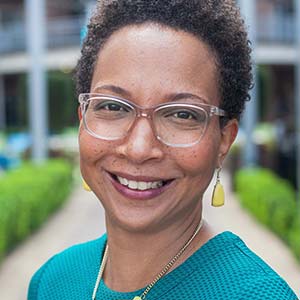
Dr. Michele A. Williams is owner of M.A.W. Consulting, LLC - Making Accessibility Work.
Her 18 years of experience include influencing top tech companies as a Senior User Experience (UX) Researcher and Accessibility Consultant, and obtaining a PhD in Human-Centered Computing focused on accessibility. A W3C-WAI Invited Expert, international speaker, published academic author, and patented inventor, she is passionate about educating and advising on technology that does not exclude disabled users.
No Industry for Old Men
A journey through twenty years of being an accessibility professional, working on Web Standards, highlighting common themes and recurrent subjects, and how thinking and the community have changed over time.
Steven Faulkner

Steve is the Chief Accessibility Officer at TPGi. He joined TPGi in 2006 and was previously a Senior Web Accessibility Consultant at Vision Australia.
Steve is a member of several groups, including the W3C Web Platforms Working Group and the W3C ARIA Working Group. He was an editor (until May 2023) of several specifications at the W3C, including ARIA in HTML and HTML Accessibility API Mappings 1.0.
He also writes on HTML5accessibility and the JAWS bug tracker/standards support.
PRESTO Vending Machines: Meeting the challenges of accessible self-serve kiosk design
The PRESTO card is an easy and convenient way to pay for public transit in the Greater Toronto, Hamilton, and Ottawa regions.
Self-serve vending machines are a key part of the PRESTO ecosystem, allowing customers to buy PRESTO cards, manage those cards and load funds to travel. In order to ensure accessibility, PRESTO has moved over time from less accessible touch screen-controlled device to a more accessible, audio-assisted, keypad-controlled devices.
This presentation will explain PRESTO’s accessibility journey with respect to vending devices and will be of interest to anyone designing a self-serve kiosk.
Marcela Correa Villada
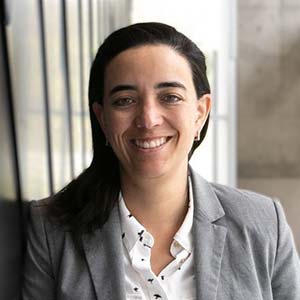
Marcela Correa-Villada (she/her) is the Senior Advisor, Accessibility, Metrolinx (PRESTO). With a MASC in Biomedical Engineering from the University of Toronto combined with years of experience supporting individuals with disabilities with their technology needs, Marcela integrates creative and practical approaches to a client focused philosophy.
Marcela is also a dance instructor, soccer coach, hiker and dog mom.
Accessibility beyond the web - Best Practices to make TV interfaces accessible
We are living in an era where accessibility is more important than ever.
In this session, we will discuss ways to create equivalent experiences through TV user interfaces, the impact that decisions and design considerations have on user experiences, what limitations exist in the TV ecosystem, and solutions for overcoming the limitations by discussing some best practices for design and implementation.
Alpesh Danabhai Ahir

Alpesh is a manager in the accessibility services team at Level Access and has been in the digital accessibility field for four years.
Alpesh holds a master's degree in Computer Science and several certifications, including Certified Professional in Accessibility Core Competencies (CPWA), DHS Trusted Tester, and Certified Accessible Player Experiences (CAPXP).
His goal is to take accessibility beyond the web. In his spare time, Alpesh loves hiking and cooking.
Save Our World with Accessibility & Progressive Enhancement
This session highlights how progressive enhancement serves not only accessibility, usability, and UX, but also sustainability, web performance, and security through best practices for ensuring no one is excluded, regardless of their technology, and how following these practices also reduce your application's impact on the environment.
Jennifer Strickland
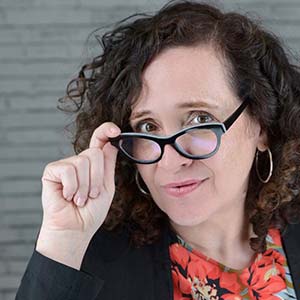
Jennifer Strickland is a Designer & Dev in D.C. with 30 years of experience across the private and public sectors in so many organizations, start-ups, enterprise, etc.
Currently, Jennifer serves the public interest at The MITRE Corporation as a Human-Centered Design & Accessibility Engineer supporting several U.S. federal agencies.
Jennifer volunteers with the U.S. Digital Response to support local government with digital services.
The Psychology Behind Accessibility Hesitation
Accessibility professionals spend too much time selling, convincing, and marketing accessibility to their peers, organizations, and leaders.
This causes frustration, burnout, slow progress in digital accessibility, and the feeling of spinning our wheels as an industry.
This talks delves into why this happens and provides examples for how to address these issues.
Jennifer Zhang
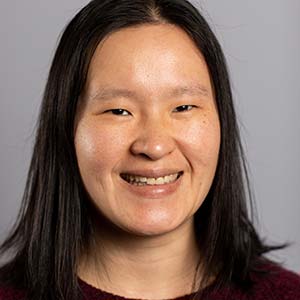
Jennifer X Zhang is the Director of the Accessibility Program and Innovation at RaLytics, a small business owned by veterans and people with disabilities.
She focuses on embedding accessibility skills, processes, and governance into RaLytic's vendor offerings with a focus on human-centred accessibility so customers can eventually learn to fish for themselves in the digital accessibility ocean.
Selling Accessibility
For many internal accessibility staff, or for persons who consider themselves accessibility advocates, it might feel hard to get other people to care about accessibility. It is such a common source of frustration that it tends to become an underlying theme during social conversations and Q&A times during accessibility conferences. Many people tend to gravitate towards attempting to sell accessibility via the “Business Case” using spurious logic and conjecture. During this presentation I’ll show that the “Business Case” isn’t what puts signatures to paper and allocates resources to accessibility. There’s a much easier way that just takes a little practice.
Karl Groves
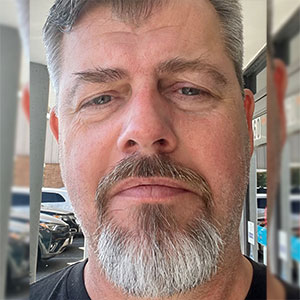
An unstoppable force for change and thought leader in an industry regarded for saying ‘No,’ Karl would rather lead by example in saying ‘Yes, and here’s how…’ He seeks to offer solutions to complex problems relating to universal usability. He believes that together we can meet both our goals: your business goals and his goals to lead the way in accessible user experiences. Karl has over a decade of experience in doing IT consulting for the biggest companies in the world and biggest agencies in the U.S. government. Widely regarded as a pragmatic solution-finder, his work is cited in nearly a dozen books and used on curricula in Human-Computer Interaction across the globe. He leads by doing, teaches from experience, and succeeds by facilitating others’ success. When others say, ‘That can’t be done,’ Karl shows them how.
Work in Disability Progress
Creating accessible spaces in your design process as well as your final product.
Jessica Oddi
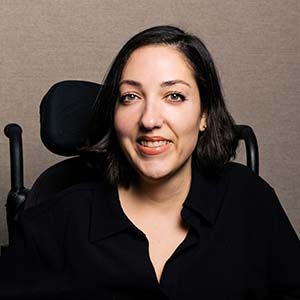
Jess is a disabled designer, focusing on accessibility and representation through branding, websites, and illustration. She has been freelancing for 11 years. Carving her own work environment has brought opportunities, challenges and perspectives. Based in Canada, she collaborates to empower communities. And has had the privilege of working alongside incredible groups across the globe.
These (still) aren't the SCs you're looking for...
WCAG is supposed to give us a reasonably objective way of saying whether or not the sites we are building/auditing are "accessible" (to a particular baseline). However, they are only as useful as our understanding and interpretation of the guidelines' normative text. And, of course, it is not perfect - with some omissions, handwaving, and straight-up loopholes. So where does this leave developers and auditors?
In this talk - a reprise of a previous talk, now updated to cover new SCs from WCAG 2.2, Patrick may not have all the answers, but he'll have a good rant around the subject anyway...
Patrick H. Lauke
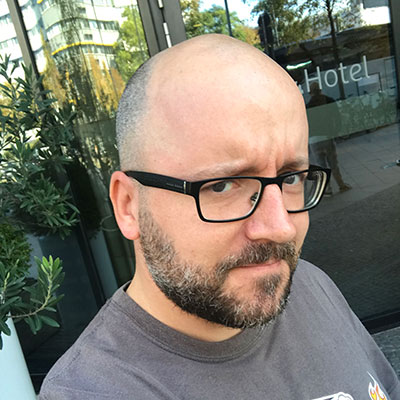
Patrick H. Lauke works as Principal Accessibility Specialist at TetraLogical. In a previous life he was Principal Accessibility Engineer at The Paciello Group, and before that worked as Web Evangelist in the Developer Relations team at Opera Software.
He's been involved in the discourse around Web Standards and Accessibility since 2001, actively speaking at conferences and participating in early initiatives such as the Web Standards Project (WaSP).
Nowadays, he acts as a WCAG trash panda, contributing to the specification in the hopes of making the standard both robust and pragmatic. He is also co-editor of ARIA in HTML, W3C Pointer Events Level 3, and W3C Touch Events Level 2.
His personal corner of the web can be found at www.splintered.co.uk.
Redesigning for Cognitive Ease
After all the WCAG standards are met, how accessible is your site for users with cognitive disabilities?
How can you tell? What does that mean? Where would you even start?
I’d been making websites for over 20 years, and I didn’t understand what it was like to use the web with a cognitive disability until I developed one. After treatment to remove a slow-growing brain tumor, I had a hard time using most websites, including the ones I built! This real-world experience gave me a newfound perspective on accessibility, and I learned that there’s no better way to understand a user’s experience than living it. It also motivated me to learn new techniques that provide more accessible experiences for users with cognitive impairments and redesign parts of my sites with a focus on cognitive ease.
Alyssa Panetta
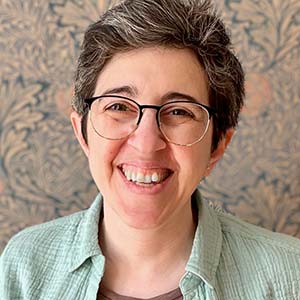
Alyssa Panetta has been designing and developing websites by hand since Y2K. She has worked for educational mathematics software companies and is currently a Web Designer/Developer for the University Libraries, University at Albany.
After a diagnosis of brain cancer in 2020 and subsequent treatment, Alyssa started a website where she writes letters to her removed tumor that is preserved in a tumor research bank: deartalula.com.
Don't let your vision be a dream
I'll share eight lessons I've learned while building Ubisoft's accessibility program and team over the past 6 years.
David Tisserand

David is the Director of Accessibility at Ubisoft. He manages a team of six people dedicated to making accessibility part of the company's DNA so we deliver an accessible end-to-end user experience to our players.
Native Mobile Accessibility Guidelines?
Native mobile accessibility is the wild west of accessibility standards.
Joe would like to see that change, with a set of directly applicable, and hopefully testable accessibility guidelines/standards for native mobile applications.
Joe Humbert
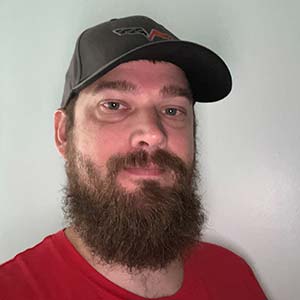
Joe is a native mobile accessibility specialist. He is passionate about and has a background in mobile accessibility, web accessibility, digital device accessibility and assistive technology. He has led over 1500 hours of in-person and remote accessibility training sessions.
Joe has spent almost 10 years in higher education. He is a Certified Professional in Web Accessibility and has a Master of Education in Special Education from Purdue University. Joe enjoys spending time with his family including two kids, two dogs and a cat.
Making your procurement process accessible
Now that you've made your internal processes accessible, it's time to ask for the same thing from your vendors. In this talk, I will cover what it took to get our vendor procurement process to include accessibility, starting with raising the awareness, working out a plan and process and then actioning it.
Robert Carr
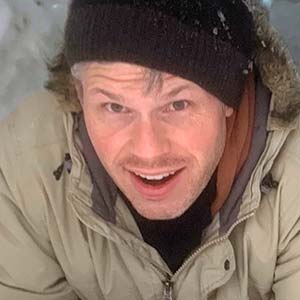
Robert is the internal accessibility lead at Publicis Sapient. Robert was first introduced to accessibility when a previous manager said, "Somebody has to do this."
Robert also worked at the CBC and is a Certificated Professional in Web Accessibility, according to the IAAP.
Avoid rotten fish in your design system with values-driven accessibility guidance
As the old saying goes, a fish rots from the head down. Which means if your design system doesn’t include clear and meaningful commitments to accessibility, your products and services are going to stink.
Based on a careful look at the language and value statements in over 100 public design systems, I’ve developed an accessibility assessment framework. In this talk I’ll explain how to clearly communicate your company’s stance on accessibility and avoid dead fish. I’ll also discuss how to structure your design system so accessibility guidance is easy to find and use.
Ryan Bigge

Ryan Bigge spent a decade as a freelance print journalist before going digital. He’s currently a staff content designer at 1Password, working on the design system team. Before that, he spent over four years as a senior content designer at Shopify, where he helped launch Shopify Marketing, Starter Loans, and Shopify Balance.
Ryan has spoken about storytelling in content design (Confab 2022), content maturity in design systems (Meetup 2020), boring UX (Abstractions 2019), and improving the web with plain words (a11yTO Camp 2017). He plans to complete his Master’s in Inclusive Design from OCAD University in September of 2023.
Preventing Accessibility Issues instead of fixing them
Fixing Accessibility Issues is a tedious and expensive task that nobody enjoys doing.
Preventing the most common issues can save a lot of money and free up engineers to focus on exciting feature work instead.
Ensuring UX is well educated and able to define, document and communicate Accessibility functionality early on is the key to a successful shift to building accessible Experiences.
Dirk Ginader
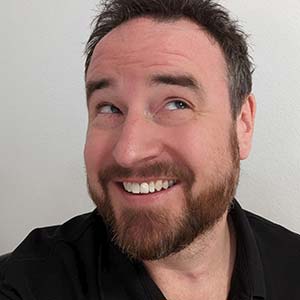
Dirk started building websites professionally in 1997 when it was harder to make them inaccessible than accessible. Since then, he has worked even harder to make the same thing, accessible products.
Dirk has worked with Google for over ten years and is now leading the Accessibility UX Engineering team of one of Google's largest organizations with the goal of making all of our products accessible to everyone.
Benchmarking Screen Reader Accessibility in User Research
UX researchers employ the System Usability Scale to measure usability, but it doesn't effectively capture data for assistive technology users.
Fable’s Accessible Usability Scale fills this gap. Let's explore the usability trends uncovered for screen reader technology.
Elana Chapman

Elana Chapman is a CPWA certified Accessibility Research Manager with a background in sign language linguistics. Since joining Fable in 2020, she has worked with assistive technology users and clients to create exceptional and inclusive product experiences.
A rebel with a cause : How to address game accessibility production challenges with confidence and audacity
Advocating for game accessibility in an organization can feel easy and risk-free... until the power is in your hands to make things move forward.
Equip yourself with foundational communication skills and organizational tools that you can use and re-use to evoke confidence in your mandate.
Améliane Chiasson
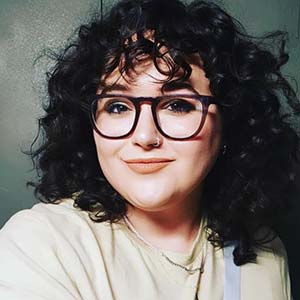
Améliane is an Accessibility Lead, her background is in UR and QA. The overlap between product quality and user well-being has always been the driving force for her initiatives. Améliane is also a huge fan of horror media, music and overall advocacy for disability rights, DEI, feminism and everything surrounding sexual safety and sex work.
Designing with empathy
Accessibility is often perceived as a complex or costly step. What if, instead of making it a step, we reimagined it as an organic process of recognizing and embracing human diversity and needs? By implementing a more realistic, human-centred design approach, we can create empathic solutions that are more accessible, inclusive, and empowering for all.
Maria Acevedo
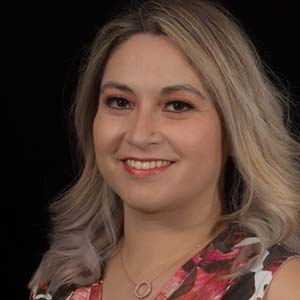
Maria is a UX Manager and Co-Founder of Avanade's Accessibility and Inclusive Design Practice. She holds a Master's degree in IT management and a specialty in usability.
Maria has over a decade of experience developing world-class solutions. Her focus is on training companies and teams to develop accessible product development as well as an inclusive workplace culture.
Maria enjoys painting, biking in the summer and doing 1000-piece puzzles.
Voice of contention
We've been designing voice experiences for almost 20 years, for telophony, satellite navigation, home assistants, video games, and custom applications, yet screen readers are lagging behind.
It turns out that we're much better at voice design than we are visual design, so why isn't it possible to design voice experiences in the browser and what can we do about it?
Léonie Watson
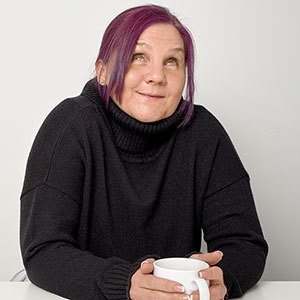
Léonie is Director of TetraLogical; a member of the W3C Board of Directors, and co-Chair of the W3C Web Applications Working Group. She's also co-organiser of the Inclusive Design 24 (#id24) conference; co-author of the Inclusive Design Principles and the Do No Harm Guide: Centering accessibility in data visualization.
So you want to build an Accessibility Program
With the growing attention to the need for more accessible and inclusive digital products, many companies are looking to take accessibility seriously. The responsibility often falls on a champion or team to determine the "how", which can feel like a daunting task.
Building an accessibility program is challenging, this talk aims to present some steps on how to tackle the challenge and give attendees the tools they need to build their programs from the ground up.
Wendy Reid
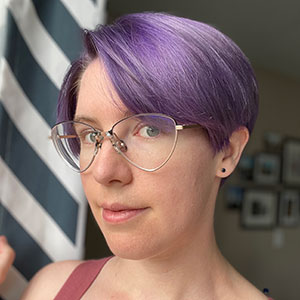
Wendy Reid is the Accessibility and Publishing Standards Lead at Rakuten Kobo. She is responsible for Kobo’s Accessibility and Standards work, with a focus on digital accessibility across a number of different products and publishing standards.
Much of Wendy's time is spent on helping colleagues understand the importance of digital accessibility and how to make their products more inclusive and usable for everyone.
An Audio Description Ghost Story: An exploration of description-rich storytelling
What happens when Audio and Visual Description is delivered through good old-fashioned storytelling? Can Description writing techniques be applied to the visuals of... anything?! Does Universal Design elevate storytelling, too? How does this relate to my ALT texts and online content? Get inspired to take your Description outside of the box in this description-rich storytelling session.
JJ Hunt
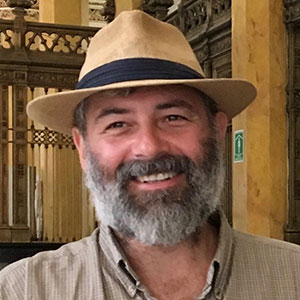
JJ Hunt is a Describer and Storyteller who has been crafting description-rich content for over twenty years. He has written and narrated Audio Description for film, television, and digital media; Visual Description for museums and galleries; and Verbal Description for live events and guided tours. His descriptions of the visual world can be heard weekly in the innovative, award-winning podcast Talk Description to Me.







